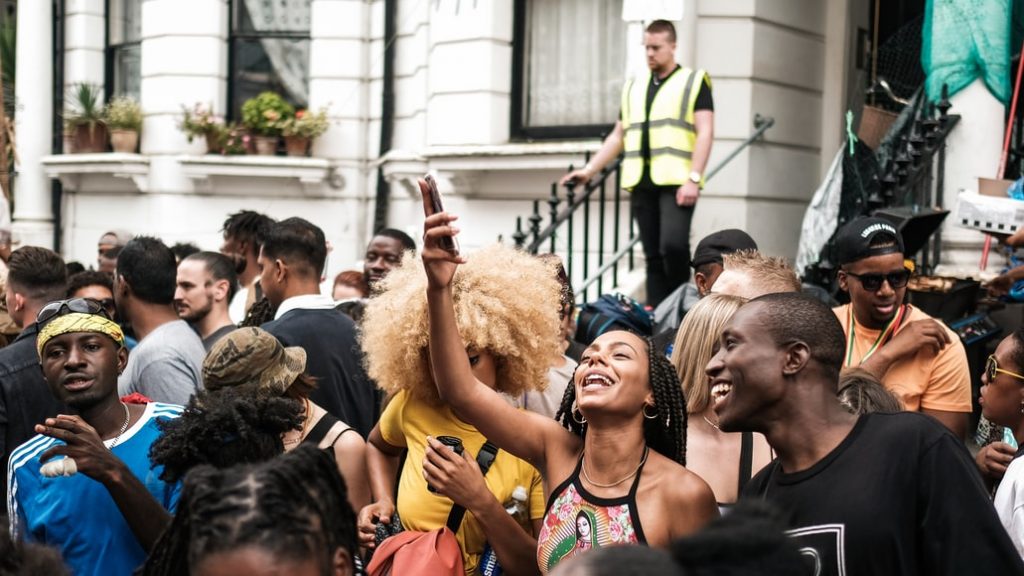This is a free essay sample available for all students. If you are looking for cheap essays for sale on the topic “Why is Black History Month Important”, browse our private essay writing samples.
Introduction
We are all familiar with Black History Month and are vaguely familiar with what people do to celebrate it. However, most of us are spectators of this observance, rather than active participants – probably because we don’t understand it as deeply.
What is the significance of Black History Month? The author in this sample essay reflects on the roots of this celebration and expounds on key reasons why it is worth actively remembering.
Get your own custom paper or academic requirement written by one of our professional writers. Our affordable essay services promise quick turnaround time and quality output.
Witnessing the Unfolding Story of the Black Community: Why Black History Month is Important
Every February, we see signs and all sorts of messaging for Black History Month. At school, there is usually a special discussion or activity set aside for this. A yearly observance that lasts for a week, this was previously called Negro History Week and was established by historian Carter G. Woodson, known as the Father of Black History. It is officially recognized and celebrated today not just by the United States, but also in Canada, Ireland, and the United Kingdom.

Most of us cognitively know that the rich story of the African-American journey is so pivotal in how American history unfolded. But why is it really so important that we all celebrate and actively participate in it? In this paper, I would like to share with you four reasons.
It is a reminder that diversity is something to be celebrated, not condemned or feared
One of the things that we will learn about Black history is that it advocates for the beauty of what distinguishes us and sets us apart. It also promotes a larger message of embracing diversity, which even goes beyond how we treat African-Americans in our communities.
From appreciating the culture and applauding success stories of black women to reflecting on the Civil Rights Movement and standing up against racism, we are called to go out of our personal bubbles and recognize the importance of seeing differences as elements that can actually unite us.
Because we tend to stick to the categories we know, it is easy for us to assume that when we come across something that or someone who looks different, it elicits a fear response within us and the immediate thought goes to conquering or running away from it. But when we go back to the past and study the lives of African-Americans, and participate in the Black Lives Matter movement, we experience a paradigm shift and recognize that diversity is an opportunity to come together and build on each others’ strengths.
It invites people from all walks of life to come together in unity
As mentioned earlier, when we study the experiences of black Americans and recognize the value they bring to society, it points to segments of our community that are unique in their own ways. We start recognizing other minorities and ethnic groups. When we deepen our knowledge of these people and develop an appreciation for them, we are more open to joining hands and collaborating with them for a brighter future.
To achieve this, it is important that people from different backgrounds are willing to approach each other and dialogue. All too often, what keeps us from coming together are our negative assumptions about those who are different from us. We lack awareness of the various members of society and even our local community, and as such, we tend to stay in our own circles.
Unity can happen when we break the barriers that keep us from putting ourselves in others’ shoes and developing empathy and appreciation for others.
It provides opportunities to bring history to life
For most of us, our history textbooks are as far as we go in terms of learning about what happened in the past. It is no surprise, then, that many of us don’t feel a personal connection with, for instance, African-American communities.
As we celebrate Black History Month, we breathe life into those old history books by rereading African-American history and seeing the story continually unfold in the lives of African-Americans today. At the same time, it is a golden opportunity for us to look at other lesser-known but equally significant historical figures who made an impact on the world.
Take the opportunity to join any African-American event and you may just learn a new thing or two about the richness of American history. Many of these activities offer new relevant information that doesn’t usually make it in the main columns of the textbook. These “side stories” are equally important, and it gives us a greater picture of the contributions other people have made in honor of the American people.
It tells us that every story is valuable
More than just highlighting the legacy of the people who came before us, annual observances such as Black History Month are also a personal reminder to make our own story count. We remember how the journeys of our forefathers led to the kind of America we are happily experiencing today. We also hear the sobering truth that someday, our stories will also matter to future generations. As such, we are pushed to maximize our lives and do good for the sake of others around us.
Conclusion
Black History Month has deepened insignificance because it has managed to bridge discussions on other related topics. It is no longer just about black communities, but now it has also opened our eyes to the reality of injustice in spheres of society that are labeled as different. It is a call to action to learn from the past and change the future of the world by changing the way that we see and treat ourselves and others. As emerging leaders, we are to look back and learn from the achievements of our forefathers and give hope for tomorrow by applying lessons we can glean from the past.

May this year’s celebration be a meaningful one!
FAQs
What is the meaning of Black History Month?
Previously known as Negro History Week, this is a yearly week-long celebration pioneered by the father of Black History, Carter G. Woodson. It is usually celebrated in February, a date that was chosen because it shared the birthdays of known anti-slavery President Abraham Lincoln and social reformer Frederick Douglas. It is an invitation for people from different walks of life to come together and reflect on the implications of their experiences.
Why is it important to study Black History?
First, there are many lessons to be gained from learning about the black experience and how it impacts the lives of many African-Americans today. It also opens our eyes to the good choices and the tragic mistakes of our forefathers. Second, and more importantly, it shines a light not just on African-Americans, but other ethnic minorities who are often discriminated against in America simply because they are different. Learning from the black experience causes us to apply the same lessons to other people who don’t fit into our “box.”
We learn to love diversity and see it as a means to find common ground so that we can support one another in our strengths and build a better nation in the process. It also reminds us that now, all the more, collaboration is important if we are on the path to creating better years ahead of us. When we teach black history, we teach students to be advocates of unique stories.